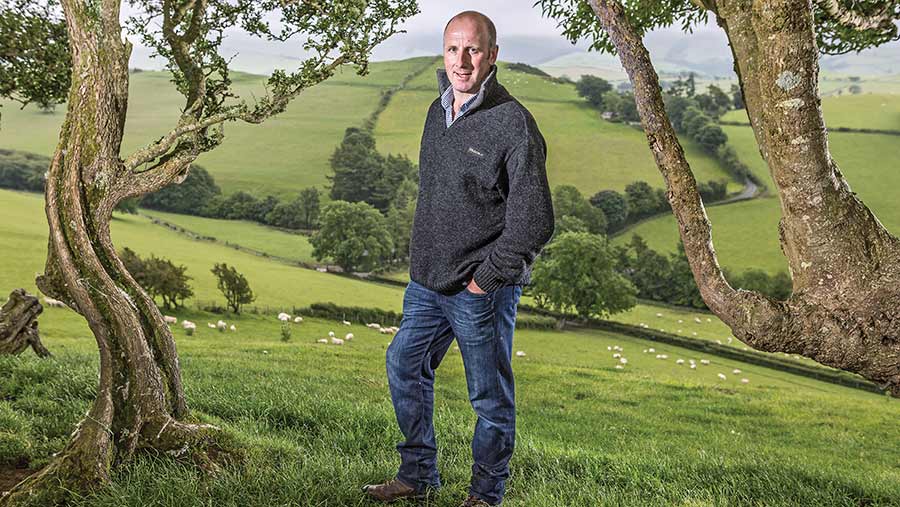Farmer Focus: Two dead lambs prompt detective work
 © Richard Stanton
© Richard Stanton I’m writing this on a lovely Sunday evening, having just enjoyed a gloriously sunny weekend.
This is all well and good for the soul, but my 10-day forecast on the phone predicts nice sunny weather until the end of May, so we could be in a difficult position in June.
Over the past five years, we have become used to dry summers and, from experience, a wet May is needed to top up soil moisture for the summer months ahead.
See also: Why demand is hotting up for worm-resistant rams
The lambs seem to be growing well, overall. Usually, we dose the lambs around the third week in May, but we had two dead lambs in the same field in early May, so we investigated.
We instantly did a faecal test with the vet and learned that there were high levels of nematodirus and coccidiosis present.
Therefore, we dosed against both. Never have we dosed the lambs so early. We are keeping an eye on the situation, but usually one dose of white drench does the job.
A busy April saw us calve, spread muck, mark and castrate lambs. We have removed sheep out of silage ground and harrowed and rolled it, as well as turning the cattle out and reseeding two fields.
May seems to be a quieter month, meaning we can enjoy the glorious countryside with its amazing colours at this time of year.
There’s been plenty of opportunity to leave the farm to attend a few meetings.
One of these was an introductory meeting to an all-Wales scab eradication scheme, launched by the Welsh government in mid-May.
The government has identified sheep scab as a national animal health problem that seriously disrupts the lamb supply chain and has committed to financing the scheme for a few years.
I’ve been attending meetings for more than 12 years that have discussed tackling this problem, so I’m very glad something positive is being done about it here in Wales.
We had an excellent day at the Welsh Sheep event at Red House Farm, Newtown. It showed Montgomeryshire at its very best.
We also attended two on-farm open days – one in Shropshire and the other in Pembrokeshire.
The topics were multispecies swards, and productive organic farming; therefore, there was plenty to learn.

